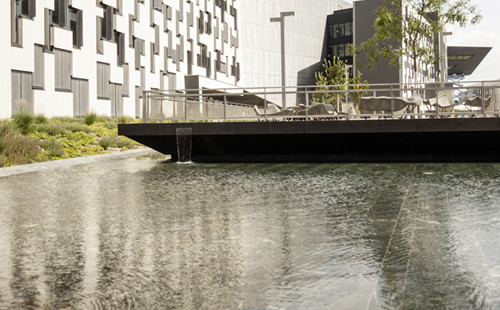IPE@WU Theses: Exploring Italy’s Shifting Stance on China’s Belt and Road Initiative with Lucie Stiborová
How do right-wing populist parties in Italy navigate relations with China’s Belt and Road Initiative, and why do their positions change once in power?
As a student of International Business Administration and Chinese, I wanted to connect my interests in economic affairs, Europe, and China in my bachelor’s thesis. After some research, Italy proved to be a fascinating case. Its current government consists of three comparably similar right-wing populist parties: Fratelli d’Italia, Lega, and Forza Italia. Yet, despite their many similarities, these parties took markedly different stances on Italy’s participation in China’s Belt and Road Initiative (BRI). My thesis set out to explain why.
I tested three hypotheses. First, that parties with a more pragmatic and less ideological profile would be more open to cooperation with China, which was examined using expert survey data. In some other countries, it seemed that economic pragmatism was often cited as a reason for cooperation with China, and I wanted to explore whether the same applied to the Italian governing parties. The second hypothesis asked whether lower alignment with Western partnerships corresponded with greater openness to China. This hypothesis was tested using manifesto data, as well as expert survey data. Lastly, I examined whether the parties’ foreign policy stances could be shaped by their governmental status as either a governing party or an opposition party. I expected the parties that are in opposition to hold a considerably more critical and rejecting stance than the governing parties. This hypothesis was tested using political discourse analysis.
While the first two hypotheses did not receive clear confirmation, I found strong evidence for the third. Consistently across the three parties, their governmental status was decisive: in opposition, parties tended to be more critical of the BRI, whereas in government, they shifted to a more cooperative and open stance, especially when considering cooperation with China as a whole.
What are the implications for the wider world? Both China and right-wing populist parties (RPPs) have risen to dominant positions in today’s geopolitics. RPPs continue to gain political power in national contexts, while China plays an increasingly important role on the global stage. These developments pose challenges, particularly for European politics. Understanding how these two actors interact is crucial for policymakers to anticipate challenges and design effective foreign policy towards China.
Regarding my personal reflection: at first, the research process felt confusing and overwhelming, but as I delved deeper, I began to enjoy uncovering patterns and connections across different explanations. By the end, I genuinely enjoyed writing my thesis, and the experience encouraged me to consider pursuing a career in academia. I am excited to announce that my next internship will be at a research institute in Vienna, where I will conduct further research on China.
I would like to thank my supervisor, Zack Zimbalist, from the IPE Institute, whose proactive, supportive, and encouraging approach was a tremendous help during the process.
Sign up for our mailing list for regular updates from the Institute. You can find the subscription form here: Subscribe to the newsletter.
![[Translate to English:] Lucie Stiborova photo](/fileadmin/wu/d/i/ipe/Third_Mission/IPE_Newsletter/Images_2025/Lucie_resized2.png)
